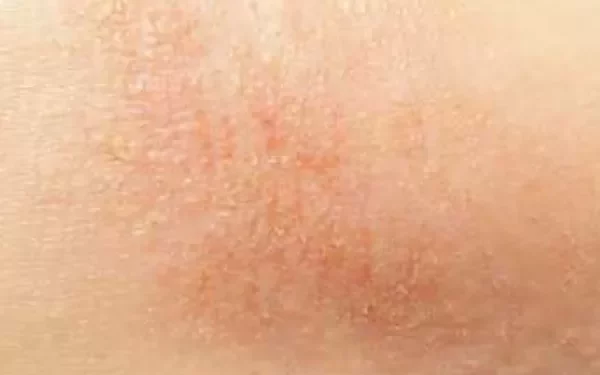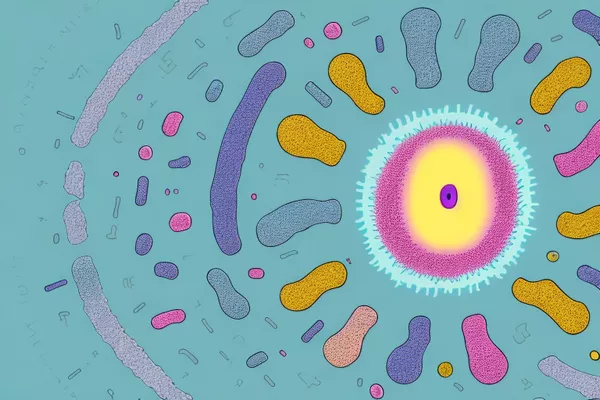Dermatitis is a condition that causes inflammation of the skin. It can lead to symptoms like redness, itching, swelling, and rashes. There are different types of dermatitis, including atopic dermatitis (eczema), contact dermatitis, and seborrheic dermatitis, among others. While dermatitis cannot always be “cured” completely, there are ways to manage and treat it effectively to reduce symptoms and prevent flare-ups.
This article will guide you through various treatment options for dermatitis, including lifestyle changes, medical treatments, and home remedies.
Understanding Dermatitis
Dermatitis occurs when the skin becomes irritated or inflamed. It can affect anyone, from infants to adults. The causes vary depending on the type of dermatitis. Some of the common factors include allergens, irritants, genetics, and even stress. Dermatitis is often chronic, meaning it can persist for long periods or come and go.
The symptoms of dermatitis can be uncomfortable. Common signs include:
- Dry, scaly skin
- Redness and inflammation
- Blisters or oozing sores
- Crusting
- Itching or burning sensations
Types of Dermatitis
Atopic Dermatitis (Eczema): This is the most common form of dermatitis, often seen in children but also affecting adults. It is linked to allergies and is often associated with asthma or hay fever.
Contact Dermatitis: This occurs when the skin comes into contact with an irritant or allergen. There are two types: irritant contact dermatitis (caused by substances like soap, chemicals, or perfumes) and allergic contact dermatitis (triggered by allergens like poison ivy or nickel).
Seborrheic Dermatitis: This type of dermatitis affects areas with a lot of oil glands, like the scalp, face, and chest. It often results in dandruff and skin flakes.
Treatment for Dermatitis
While there is no permanent cure for dermatitis, treatments can help control flare-ups and ease symptoms. Treatments often depend on the type and severity of dermatitis. Below are some common and effective treatments.
1. Topical Treatments
Topical treatments are creams, ointments, or lotions applied directly to the affected area of skin. These treatments are often the first line of defense for managing dermatitis.
Corticosteroids: These are anti-inflammatory medications commonly used to treat dermatitis. Over-the-counter hydrocortisone creams can be helpful for mild cases. For more severe symptoms, a doctor might prescribe stronger corticosteroids. It’s important to follow the doctor’s instructions when using these to avoid side effects like thinning skin.
Topical Calcineurin Inhibitors: Medications like tacrolimus (Protopic) or pimecrolimus (Elidel) are used for eczema and other types of dermatitis. These are non-steroid medications that help to reduce inflammation and are often prescribed for sensitive areas like the face.
Emollients: These are moisturizing products that help prevent the skin from becoming too dry. Regular use of emollients can help manage dermatitis and prevent flare-ups. Look for emollients that are fragrance-free to avoid irritation.
2. Oral Medications
For more severe cases of dermatitis, oral medications may be required. These help control inflammation or treat underlying causes.
Antihistamines: If itching is a major problem, antihistamines can be used to relieve the sensation. Some antihistamines can be sedating, so they may help with sleep as well.
Oral Steroids: In cases of severe inflammation, oral corticosteroids like prednisone may be prescribed for short-term use. These can be very effective in reducing symptoms but are usually used cautiously due to potential side effects.
Antibiotics: Sometimes, dermatitis can lead to bacterial infections due to open sores and scratching. In such cases, a doctor may prescribe antibiotics to treat the infection.
3. Light Therapy (Phototherapy)
In some cases, light therapy may be recommended, especially for chronic or severe eczema. This involves exposing the skin to controlled amounts of ultraviolet (UV) light. Light therapy works by reducing inflammation and slowing down the rapid growth of skin cells. This treatment is usually done in a clinical setting under medical supervision.
4. Allergy Testing and Avoiding Triggers
Many forms of dermatitis, especially contact dermatitis and atopic dermatitis, can be triggered by allergens or irritants. Identifying and avoiding these triggers can be a crucial step in managing dermatitis.
Patch Testing: A dermatologist can conduct patch testing to identify specific allergens that may be causing a reaction. Once you know your triggers, you can take steps to avoid them.
Allergy Medications: If allergies are contributing to your dermatitis, antihistamines or other allergy medications may be used to manage reactions.
5. Lifestyle and Home Remedies
There are several lifestyle changes and home remedies that can help manage dermatitis and improve overall skin health.
Moisturize Regularly: Keeping the skin hydrated is key to managing dermatitis. Use fragrance-free moisturizers that lock in moisture. Apply moisturizer immediately after bathing to trap water in the skin.
Avoid Hot Water: Hot water can strip the skin of its natural oils, worsening dryness and irritation. Instead, use lukewarm water when washing or bathing.
Use Mild Soaps: Strong soaps and body washes can irritate the skin. Choose mild, soap-free cleansers that are gentle on the skin.
Wear Soft, Breathable Fabrics: Avoid tight clothing and fabrics that can irritate the skin, such as wool. Instead, opt for soft, cotton fabrics that allow the skin to breathe.
Reduce Stress: Stress is a known trigger for dermatitis flare-ups. Finding ways to manage stress, such as through relaxation techniques, yoga, or meditation, can help reduce symptoms.
Avoid Scratching: Scratching can make dermatitis worse by causing skin damage and leading to infection. Try to keep nails short and wear cotton gloves at night if necessary.
6. Diet and Supplements
While there is no specific “dermatitis diet,” some people find that certain foods may help reduce inflammation or improve their skin health.
Anti-Inflammatory Foods: Incorporate foods that reduce inflammation, such as fruits, vegetables, fatty fish (like salmon), and nuts. Omega-3 fatty acids found in fish and flaxseed may be particularly helpful.
Probiotics: Some studies suggest that probiotics (beneficial bacteria found in foods like yogurt) can help improve skin health, especially in cases of eczema.
Avoid Trigger Foods: Some individuals find that certain foods may worsen their dermatitis. Common triggers include dairy, gluten, or eggs. It may be helpful to try an elimination diet under the guidance of a healthcare provider to see if any foods exacerbate your symptoms.
7. Alternative Therapies
Some people explore alternative therapies to complement traditional treatments. While more research is needed, some methods may offer relief from dermatitis symptoms.
Oatmeal Baths: Oatmeal has soothing properties that can help relieve itching and irritation. You can add colloidal oatmeal to a warm bath or use oatmeal-based lotions.
Aloe Vera: Aloe vera gel is known for its cooling and healing properties. Applying fresh aloe vera gel to the affected skin may help reduce inflammation and soothe irritated skin.
Coconut Oil: Coconut oil has natural moisturizing and anti-inflammatory properties. It can help keep the skin hydrated and reduce dryness associated with dermatitis.
When to See a Doctor
If your dermatitis is not improving with over-the-counter treatments or home remedies, or if it is affecting your quality of life, it is important to seek medical advice. A doctor or dermatologist can provide a proper diagnosis and suggest more advanced treatments.
In addition, you should see a doctor if:
- You develop an infection (increased redness, warmth, or pus)
- Your symptoms spread or worsen despite treatment
- Your dermatitis is significantly affecting your sleep or daily activities
Conclusion
Dermatitis is a chronic skin condition that can cause discomfort, but with the right treatments and lifestyle adjustments, you can manage it effectively. From topical treatments to home remedies, there are many ways to reduce flare-ups and improve your skin health. By identifying your triggers, moisturizing regularly, and working with a healthcare provider, you can take control of dermatitis and live more comfortably.
Related topics



























